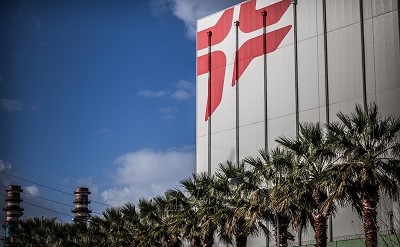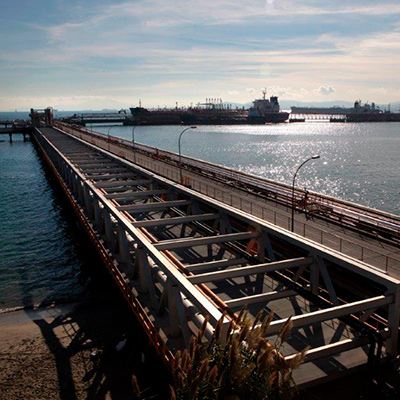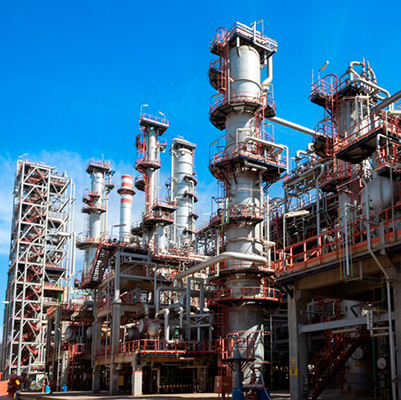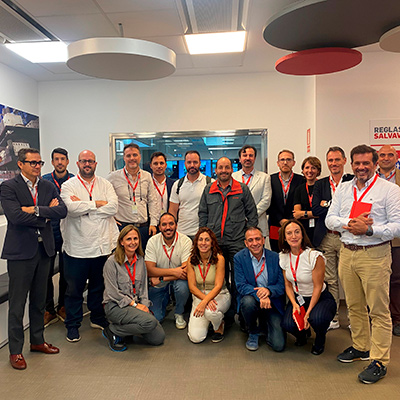- Environmental protection, energy efficiency, security, digitalization, and facility optimization projects are those highlighted
- Last year, the company started producing biofuels to promote the decarbonization of sectors such as the maritime and aviation industries, for which it equipped its plants to process vegetable waste
- The company plans to invest more than 3.6 billion euros in Spain over the next three years, of which more than half will be allocated to sustainable businesses
The Cepsa Director of Energy Parks, Antonio Joyanes, indicated that "the investment figures demonstrate Cepsa's commitment to decarbonization, as set out in our Positive Motion strategy, and to the safety and environmental protection of our Energy Parks in Andalusia, a key territory for our industrial activity and our future as a company".
In the case of the San Roque Energy Park, about half of the investment was dedicated to optimizing and upgrading units to improve capacity, replace equipment, and develop planned shutdowns, in addition to plant safety. Also noteworthy are the investments in environmental protection and energy efficiency actions, such as improvements in the implementation of the tailings plant and projects to reduce emissions and particulate matter. Security-related initiatives also took place in 2022, including the Energy Park perimeter video surveillance system. In addition, it was a year for further progress in the implementation of digital transformation in plant operations.
With respect to the La Rábida Energy Park (Huelva), the most important investments last year were related to improving the facilities for supplying the ship loading docks and modifications to the units to get them ready to process vegetable waste and to produce, for the first time, biofuel for aviation and biodiesel from 100% vegetable waste. More than half of the Energy Park investment was for projects aimed at reducing atmospheric emissions, shutdowns, efficiency, and safety. The implementation of the digital transformation, which is a key factor in the energy transition, has also continued to make progress at the facilities.
At both Cepsa energy parks, a cultural change based on the Lean Manufacturing philosophy, called BRIO, has been carried out. It encourages creativity and the maximization of the added value that each employee contributes to the company's processes and involved implementing ideas and improvements stemming from all departments, which were included in these annual investments.
As part of its ambition to turn Spain into a green energy powerhouse, the company plans to develop projects with a total investment of more than 3.6 billion euros over the next three years, of which more than 50% will be dedicated to sustainable businesses. This is the equivalent of a 93% increase in investment compared to the last three years.
Cepsa, through its Positive Motion strategy, will invest up to 8 billion euros to drive the energy transition and become a leader in sustainable mobility, green hydrogen, and advanced biofuels in Spain and Portugal by 2030, putting customers at the center of the activity and helping them in their decarbonization. The company plans to invest nearly 60% of the total amount (5 billion euros) in Andalusia, which it has placed as the central axis of its new strategic plan, and which will place it at the forefront of Europe in the latest technologies for generating green molecules.
In order to drive the implementation of Positive Motion and create a positive impact inside and outside the company, Cepsa has recently launched its Sustainability Plan, "Driving Positive Impact". Along with its goals of zero net emissions and gender diversity, Cepsa's Sustainability Plan includes commitments to increasing the circularity of its waste by 50% by 2030, starting to produce green hydrogen by recycling wastewater, and reducing freshwater extraction in water-stressed areas by 20% by 2025.
Last year, Cepsa and the Association of Municipalities of Campo de Gibraltar public company Aguas y Servicios del Campo de Gibraltar (Arcgisa) signed a pioneering agreement under which the San Roque Energy Park can be supplied with recycled water from urban effluent. Municipal wastewater will therefore be recycled and reused for industrial purposes. This move will significantly reduce Cepsa's current consumption of water managed by the Ministry of Agriculture, Fisheries, Water and Rural Development of the Andalusia Regional Government for its activities and will also make the development of the future Andalusia Green Hydrogen Valley possible with the minimum possible water input.




